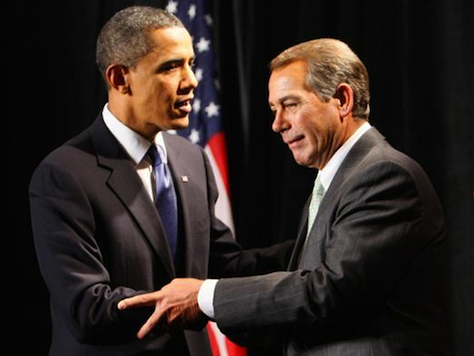
Okay, so what happened to gridlock? In Washington, there was the passage of the so-called “Cromnibus” spending bill, which provides safe passage for $1 trillion in federal expenditures through 2015. No showdowns, no filibusters or cloture battles, no threats to shut down the government.
Granted, there are some objectionable provisions, and Senator Elizabeth Warren (D-Mass.) inveighed valiantly (but in vain) against one of them — a proviso that seemingly opens the door for big financial institutions covered by the Federal Deposit Insurance Corporation to resume the trading in derivatives swaps that contributed so much to the Big Crash of 2008-9.
But congressional Democrats didn’t want another shutdown battle and, for a change, neither did Republicans, who may, after their virtual sweep at the polls this year, simply want a chance to prove they can actually govern. There is still a gridlock of sorts. The word “cromnibus,” incidentally, is an amalgamation of “continuing resolution” and “omnibus.” The former term, often abbreviated as “CR,” denotes a decision to continue with the previous year’s spending and authorizations in lieu of an agreement. But only one aspect of this year’s omnibus bill had to be dealt with in that manner — funding for the Department of Homeland Security (DHS), which the GOP held up so as to leverage DHS funding next spring against President Obama’s executive actions on immigration.
Still, the end-of-year spending bill hearkens back to what, in comparison to gridlock, were the good old days of bipartisan wheeling and dealing, mutual backscratching, and backroom deals. That’s what constitutes “progress” in our time.
And in Nashville … After two years in which the state’s new Republican super-majority successfully blocked acceptance of millions of dollars in annual funding for Medicaid expansion under the Affordable Care Act (ACA), the GOP’s acquiescent but well-intentioned Governor Bill Haslam has somehow wriggled his twisted arm free and cut a deal with the feds! And even Ron Ramsey, the arch-conservative state Senate speaker and lieutenant governor who has more or less directed legislative policy during Haslam’s tenure, has professed himself open-minded about the plan that the governor is calling “Insure Tennessee.”
Never mind that Insure Tennessee may or may not be an ideal way of coping with the problem of uninsured Tennesseans or of applying the substantial federal subsidies that come with acceptance of this aspect of ACA. The plan’s complicated methodology has a Rube Goldberg-like look to it — one that will, we hope, get spelled out via debate during the special legislative session Haslam has called for in early January.
The point is that if the GOP’s legislative super-majority, which has granted itself veto power over any proposed version of Medicaid expansion, can be brought to accept Insure Tennessee, and, if the feds do follow through with a waiver for Haslam’s alternative, there are real benefits. Most importantly, TennCare, the state’s version of Medicaid, would get a badly needed infusion of operating funds, enough to help rescue Tennessee’s hospitals, so many of which are teetering on the edge of insolvency.
Make no mistake: Neither in Washington nor in Nashville is right-wing tunnel vision over with. In some ways it may be just beginning. But maybe there is light at the end of the tunnel — something worth groping toward, anyhow.